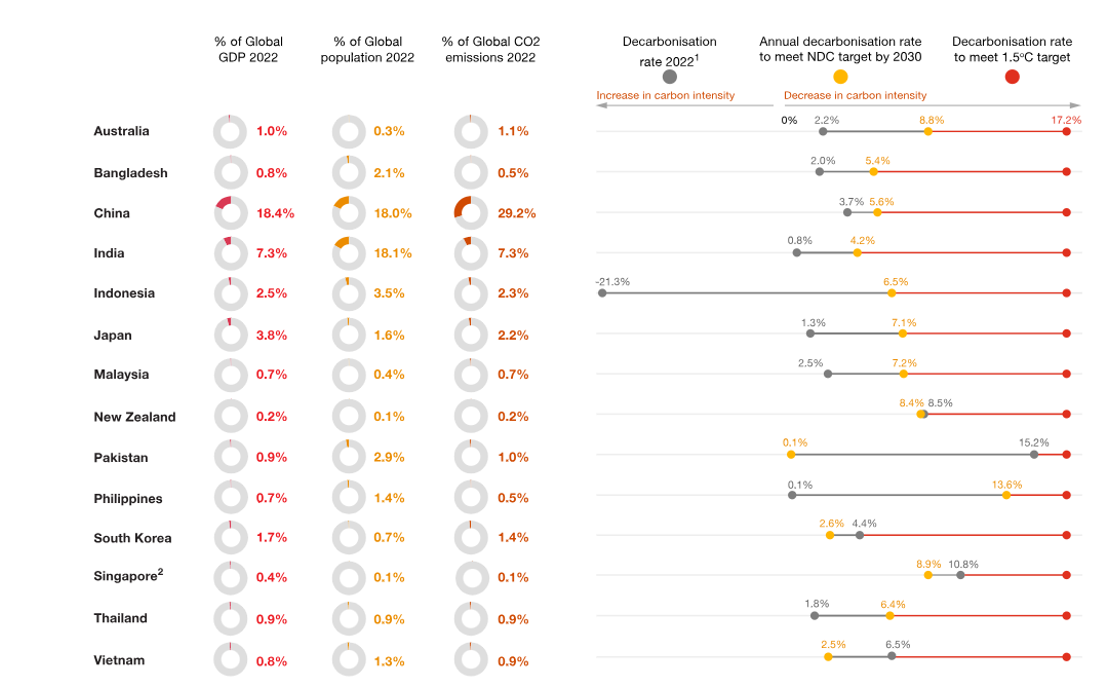Though the Asia-Pacific region cut its carbon intensity rate by 2.8 per cent in 2022, more than double the rate of 1.2 per cent recorded in 2021, only five countries - Vietnam, New Zealand, Pakistan, South Korea, and Singapore - managed to meet their Nationally Determined Contributions (NDC) target, according to analysis released by PricewaterhouseCooper (PwC) on January 17 based on its Net Zero Economy Index for 2023.
The Net Zero Economy Index tracks the decarbonization of energy-related carbon dioxide emissions worldwide by measuring levels of energy consumption relative to GDP and the carbon content of that energy.
PwC’s 2023 Index revealed that no economy in the Asia-Pacific posted a decarbonization rate in 2022 that was close to the level required to limit global temperature rises below 1.5°C, as stated in the Paris Climate Agreement, despite the region being responsible for 48 per cent of global emissions.
While no Asia-Pacific economies reached the 17.2 per cent rate required rate to align with a 1.5°C target, Vietnam ranked fourth among five economies with the highest decarbonization rate in the region, with 6.5 per cent, behind Singapore (10.8 per cent) and New Zealand (8.5 per cent) and ahead of South Korea (4.4 per cent). Though Pakistan ranked first, with 15.2 per cent, it is suffering from a severe energy crisis.
Vietnam is ranked among economies with a negative or slow process in reducing their carbon intensity and which still heavily rely on fossil fuels to sustain their economic growth. However, the carbon intensity of this group is generally lower than the G7 average, meaning that a reduction in fuel factors could significantly reduce carbon intensity.

Mr. Abhinav Goyal, Director of Capital Projects and Infrastructure at PwC, expressed his appreciation of Vietnam’s ambitious NDC updated in 2022, which showcased significant strides forward towards prioritizing sustainability, emphasizing renewable energy adoption and more ambitious emissions reduction targets reflecting a strong commitment to climate action.
“While the NDC seems to be in line with Vietnam’s ambition of achieving net-zero by 2050, more can be done to accelerate towards a net-zero future,” he added. “This change requires cooperative action from the government, through robust policies and detailed guidance including fostering global collaboration, and businesses, through responsible practices and green investments.”
He also pointed out that by implementing its climate goals, through a blend of effective policy and mitigation strategies, Vietnam can receive financial and economic benefits from attracting sustainable investments, creating more jobs, and becoming a pioneer in clean technology, marching towards a resilient and low carbon future.









 Google translate
Google translate